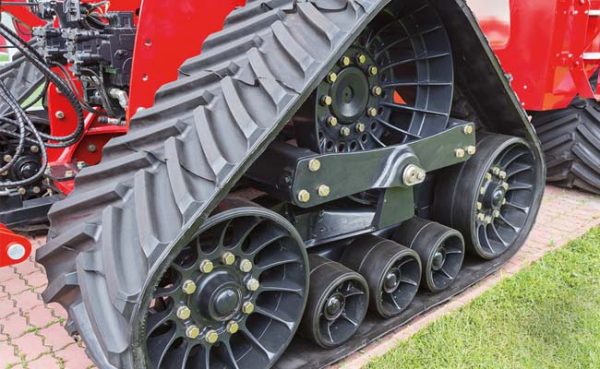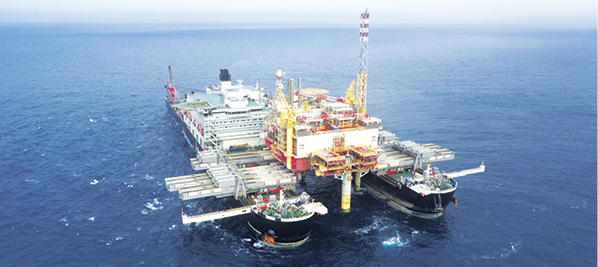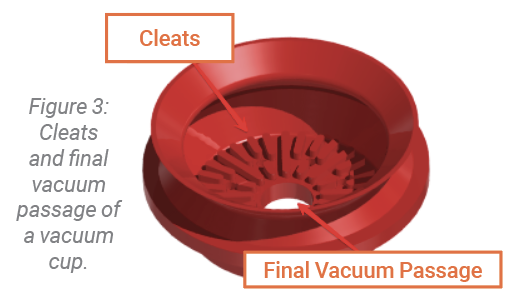Reliable Pumps Critical to Carrier Launch Systems
By John Quirk, BSM Pump Corporation

Aircraft carriers serve a key role in our nation’s defense. Their main purpose is the staging of airplanes that can be launched quickly from anywhere around the globe. Within these incredibly complex systems, which are essentially floating military bases, one of the most critical components is the plane catapult system.
With a typical flight deck clocking in at around 1,000 feet, the runway length on an aircraft carrier is more than seven times shorter than a runway on land. To launch an aircraft that typically requires a 2,300-foot runway in a mere 300 feet, aircraft carriers rely on powerful catapults to propel an aircraft from 0 to over 160 mph – in just two seconds.
At peak operation, a plane can be launched from the flight deck every 25 seconds. At that pace, in such confined space, there is little margin for error. Each piece of equipment must function perfectly to prevent disaster. The gear pumps that lubricate the catapult system keep it functioning in top form. When selecting a pump for an aircraft catapult, or any complex mission-critical system, there are a number of key environmental, maintenance, and manufacturing considerations.
Knowing the environment
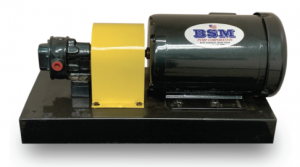 An aircraft carrier has unique environmental considerations, and taking these into account helps eliminate points of failure before they become problems for pump performance.
An aircraft carrier has unique environmental considerations, and taking these into account helps eliminate points of failure before they become problems for pump performance.
Exposure to ocean air greatly accelerates metal corrosion compared to typical inland air. The presence of salt and the high level of humidity work together to cause corrosion, rust, and pitting on metal. This atmospheric corrosion can impede pump operation and lead to pump failure.
Different metals offer varying protection from atmospheric corrosion. Some of the most corrosion resistant are red metals, which include copper and its alloys, brass and bronze. While they may discolor a bit when exposed to oxygen, red metals don’t corrode, rust, or pit and are estimated to last more than 1,000 years.
Bronze pumps provide the corrosion resistance critical to long service life while operating with around-the-clock exposure to salty ocean air aboard an aircraft carrier. But not all bronze is created equal. Specialty bronze alloys with silicon, aluminum, or phosphor are formulated especially for marine environments. When selecting pumps for these environments, always know precisely which bronze alloy you are getting.
Another major environmental factor on an aircraft carrier is the shock and vibration generated by the aircraft launch. The massive amount of force needed to propel a 48,000-pound plane into the air on a short runway in seconds creates a shockwave that impacts all the equipment on the flight deck.
Continual vibration and frequent shock can physically damage a pump and its components, potentially leading to pump failure. To mitigate these detrimental effects, manufacturers with expertise in this area can custom engineer specialty pumps with a reinforced design.
Ongoing maintenance
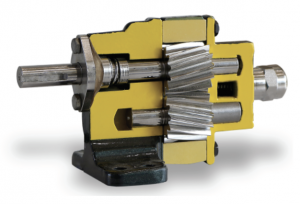 In any industrial setting, whether a plant or an aircraft carrier, the last thing you want is equipment that requires frequent maintenance. Choosing the correct pump for the environment goes a long way toward forestalling any required maintenance, but there are additional factors that can further ensure long, trouble-free operation.
In any industrial setting, whether a plant or an aircraft carrier, the last thing you want is equipment that requires frequent maintenance. Choosing the correct pump for the environment goes a long way toward forestalling any required maintenance, but there are additional factors that can further ensure long, trouble-free operation.
It’s simple math that the fewer parts a machine has, the fewer points of failure it has. Seals, gaskets, and other wearing parts require regular replacement even under the best operating conditions. The corrosive atmosphere of an aircraft carrier accelerates the wear of these parts, which are often rubber.
Most pumps require a rubber gasket as a seal between the housing sections. An exceptional manufacturer can often eliminate the need for these gaskets with precision manufacturing. With the ability to machine within extremely tight tolerances, parts can be solidly fitted together without intervening gaskets and still operate without leaking.
Another regular maintenance consideration on a pump is lubrication to minimize friction and subsequent wear of moving parts. Especially in an application where the pump itself is part of a lubrication system for a larger piece of equipment, no one wants another piece of equipment that needs regular manual lubrication. Choosing a self-lubricating pump can eliminate this step. In a self-lubricating gear pump, the pumped lubricant keeps the pump in smooth working order.
Defense manufacturing expertise
With the lives of our service members and the security of our nation on the line, the military is understandably particular about each step of the manufacturing of each part that goes into its aircraft carriers – right down to the screws.
Every piece that makes up the finished pump must be American-made. Meticulous attention to detail is given to documenting the provenance of all materials and the manufacturing process itself. The documentation, review, and verification can add months to the manufacturing process.
When selecting equipment for defense applications, working with a manufacturer well-versed in these intricacies prevents additional delay. An experienced manufacturer knows where to source American-made components and what is expected in terms of documentation, testing, and review. These manufacturers are used to adhering to the very highest quality standards.
While a gear pump small enough to hold in your hand may be a tiny part of a 97,000-ton aircraft carrier, the role the pump plays in aircraft launch catapults is critical. Careful pump selection – taking into account environmental, maintenance, and manufacturing considerations – ensures long, trouble-free service life.

